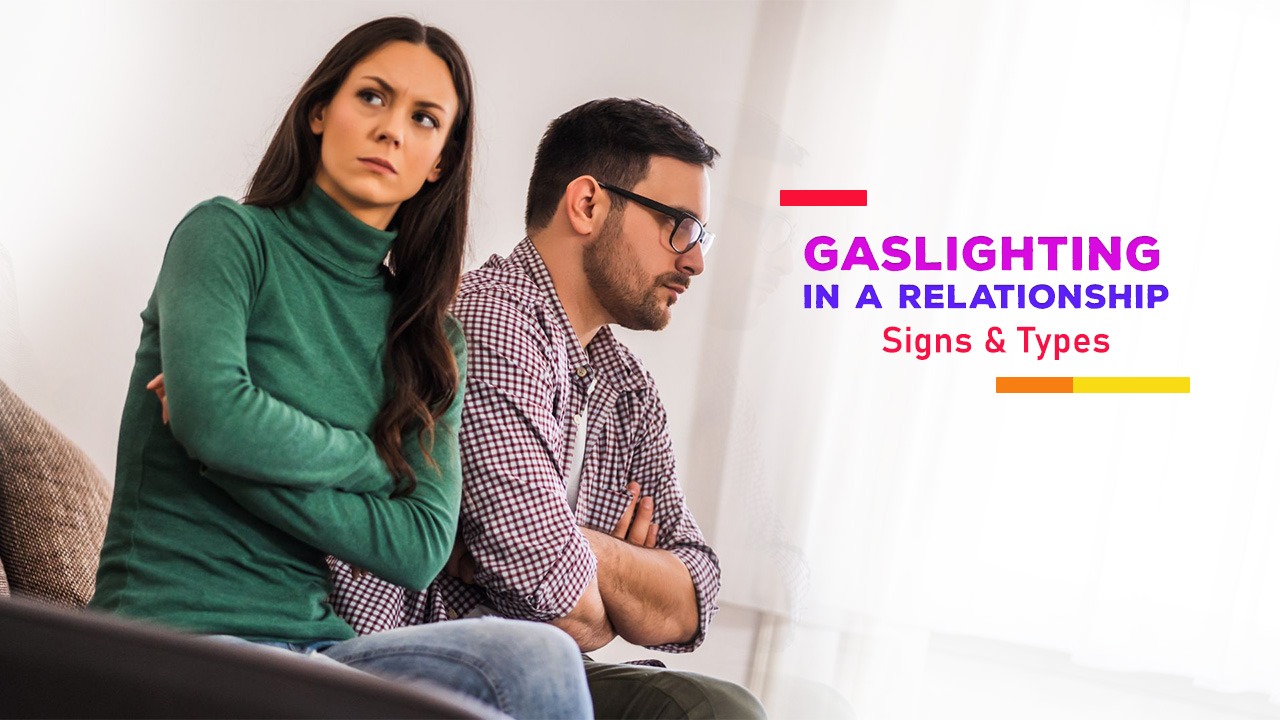Have you ever felt confused, doubting your own memory or perception in your relationship? You might be experiencing gaslighting. This sneaky form of emotional abuse can leave you feeling lost and unsure of yourself. This post will explain what gaslighting in a relationship is, how to recognize it, and why some people engage in it.
Gaslighting is a type of manipulation in which someone forces you to question your own reality. The term originates from the 1938 play “Gas Light,” in which a husband deceives his wife into believing she is insane. In relationships, gaslighting can be very harmful. It can make you lose trust in yourself and feel dependent on your partner.
Understanding gaslighting is important for healthy relationships. This article will help you recognize the signs, understand different types of gaslighting, and learn why people might do it. We’ll also explore strategies for safeguarding yourself and seeking assistance in the event of gaslighting.
What is Gaslighting?
Gaslighting is a form of emotional abuse. It happens when someone tries to make you doubt your own thoughts, feelings, and memories. The gaslighter might deny things that happened, twist facts, or tell you that you’re overreacting. Over time, this can make you question your own judgment and reality.
In relationships, gaslighting often happens slowly. At first, you might not notice it. The gaslighter might say things like, “You’re too sensitive” or “That never happened.” They might make you feel like you’re the one with the problem. This can be very confusing and hurtful.
Gaslighting is different from normal disagreements. In a healthy relationship, both people can share their views and feelings. With gaslighting, one person tries to control the other by making them doubt themselves.
30 Signs of Gaslighting in Relationships
Recognizing gaslighting can be hard, especially when you’re in the middle of it. Here are 30 signs to watch out for:
- They deny things you know happened.
- They tell you you’re overreacting or too sensitive.
- They twist your words or use them against you.
- They make you doubt your memory.
- They tell you you’re imagining things.
- They blame you for their unacceptable behavior.
- They say you’re crazy or unstable.
- They make you feel guilty for having emotions.
- They minimize your concerns.
- When you raise issues, they change the subject.
- They claim that others concur with them, not you.
- They use your insecurities against you.
- They make you feel like you’re always wrong.
- They lie, even when you have proof.
- They make you doubt your own judgment.
- They tell you you’re confused.
- They make you feel like you need them in order to understand reality.
- They use love as a way to control you.
- They make you feel like you’re the problem in the relationship.
- They tell you you’re remembering things wrong.
- They make you feel like you’re going crazy.
- They tell you you’re too emotional.
- They make you question your own intentions.
- They trivialize your feelings and experiences.
- They make you feel like you’re not successful enough.
- They tell you you’re paranoid.
- They make you doubt your own perceptions.
- They tell you you’re misunderstanding things.
- They make you feel like you can’t trust your own instincts.
- They tell you you’re making things up.
If you observe a significant number of these signs in your relationship, it could potentially indicate gaslighting. Remember, it’s not your fault, and you’re not crazy.
Types of Gaslighting
In relationships, gaslighting can take various forms. Here are some common types:
- Verbal gaslighting: This is when someone uses words to make you doubt yourself. They might say things like, “You’re remembering it wrong” or “That never happened.”
- Behavioral gaslighting: This is when someone’s actions don’t match their words. They might deny doing something you saw them do.
- Emotional gaslighting: This is when someone invalidates your feelings. They might say you’re overreacting or too sensitive.
- Reality Shifting: This is when someone changes their story or facts to confuse you. They might tell you one thing one day and something different the next.
- Minimizing: This is when someone downplays your concerns or experiences. They might tell you you’re making a big deal out of nothing.
- Blame shifting: This is when someone always makes things your fault, even when they’re clearly not.
- Love Bombing: This is when someone showers you with affection after gaslighting you. It can make you doubt your concerns.
- Withholding: This is when someone refuses to listen to you or engage in conversation about your concerns.
- Countering: This is when someone questions your memory of events, even when you’re sure about what happened.
- Forgetting: This is when someone pretends to forget things that are important to you or events that actually occurred.
Understanding these types can help you identify gaslighting in your relationship. Remember, gaslighting can involve one or many of these types.
Why Do People Gaslight in Love?
Gaslighting is a harmful behavior, but people might do it for different reasons. Here are a few common reasons why people might gaslight in relationships:
- Control: Some people use gaslighting to control their partner. By making you doubt yourself, they can make you more dependent on them.
- Insecurity: Sometimes, people gaslight because they feel insecure. They may try to make you feel bad in order to make themselves feel better.
- Avoiding Responsibility: Some people resort to gaslighting to avoid taking responsibility for their actions. By making you doubt what happened, they can avoid facing consequences.
- Fear of Abandonment: Fear of abandonment can lead some individuals to engage in gaslighting techniques. They may try to make you feel as though you need them.
- Learned Behavior: Some people might have learned gaslighting from their own past relationships or family dynamics.
- Narcissism: People with narcissistic traits might gaslight to maintain their sense of superiority.
- Manipulation: Some people use gaslighting as a way to get what they want in the relationship.
- Covering Up Lies: If someone has been dishonest, they might use gaslighting to cover their tracks.
- Power Imbalance: In relationships where one person has more power (for example, financial control), they may use gaslighting to maintain that power.
- Emotional Immaturity: Some people might gaslight because they lack the emotional skills to handle conflicts in a healthy way.
It’s important to remember that while understanding these reasons can help, it doesn’t excuse the behavior. Gaslighting is harmful, regardless of the reason behind it.
Effects of Gaslighting on Victims
Gaslighting can have serious consequences for those who experience it. These effects can last long after the relationship ends. Here are some common effects:
- Low Self-Esteem: Gaslighting can make you doubt yourself and feel negative about who you are.
- Anxiety: You might feel nervous or worried all the time, especially about saying or doing the “wrong” thing.
- Depression: The constant doubt and confusion can lead to feelings of sadness and hopelessness.
- Trust Issues: You may find it difficult to trust others or even yourself after experiencing gaslighting.
- Confusion: You might often feel confused about what’s real and what’s not.
- Isolation: Gaslighting can make you pull away from friends and family.
- Dependency: You may become overly reliant on the gaslighter for validation and reality-checking.
- PTSD: In severe cases, gaslighting can lead to post-traumatic stress disorder.
- Physical Symptoms: Stress from gaslighting can cause headaches, stomach problems, and other physical issues.
- Loss of Identity: Over time, you might feel like you’ve lost your sense of who you are.
- Difficulty Making Decisions: Constant self-doubt can make it challenging to make even simple choices.
- Apologizing Too Much: You might find yourself always saying sorry, even for things that aren’t your fault.
- Lack of self-confidence: You might struggle to believe in your own abilities and judgment.
- Feeling Stuck: You might feel unable to leave the relationship, even if you want to.
- Guilt and Shame: You might feel awful about yourself without really knowing why.
These effects can be serious and long-lasting. If you’re experiencing these, it’s important to seek help and support.
How to Protect Yourself from Gaslighting?
You can take the following actions to protect yourself if you suspect gaslighting:
- Trust Your Gut: If something feels wrong, pay attention to that feeling.
- Keep a Journal: Write down what happens. This can help you keep track of the truth.
- Talk to Others: Share your experiences with trusted friends or family. They can offer support and perspective.
- Set Boundaries: It’s okay to say no and stand up for yourself.
- Gather Evidence: If possible, keep texts, emails, or other proof of what really happened.
- Practice self-care: Take care of your physical and emotional health.
- Seek Professional Help: A therapist can help you process your experiences and build coping skills.
- Learn about gaslighting: The more you understand it, the better you can spot it.
- Don’t Argue About Reality: Gaslighters often won’t admit the truth. Focus on your own perceptions.
- Build Your Self-Esteem: Keep in mind that the gaslighter doesn’t determine your worth.
- Consider Your Safety: If you feel unsafe, reach out to a domestic violence hotline for help.
- Practice assertiveness: Learn to express your thoughts and feelings clearly and calmly.
- Don’t blame yourself: Remember, gaslighting is the gaslighter’s choice. It’s not your fault.
- Take Time to Reflect: When possible, step back and think objectively about your relationship.
- Plan for the Future: Think about what you want for yourself and your life.
Remember, you deserve to be in a relationship where you feel respected and valued. Protecting yourself from gaslighting is an important step in that direction.
Getting Help and Support
If you’re dealing with gaslighting, you don’t have to face it alone. Here are some ways to get help and support:
- Therapy: A mental health professional can help you process your experiences and develop coping strategies.
- Support Groups: Joining a group for people who have experienced emotional abuse can provide understanding and validation.
- Domestic Violence Hotlines: These services can offer advice and resources, even if you’re not experiencing physical abuse.
- Friends and Family: Trusted loved ones can offer emotional support and a reality check.
- Online Resources: There are many websites and forums dedicated to understanding and recovering from gaslighting.
- Books: Learning about gaslighting can help you better understand your experiences.
- Legal Aid: If you’re considering leaving a relationship, a lawyer can advise you on your rights.
- Employee Assistance Programs: Some workplaces offer counseling services.
- Crisis Text Lines: If you need immediate support, these services can help.
- Self-Help Programs: Some organizations offer programs specifically for healing from emotional abuse.
Remember, reaching out for help is a sign of strength, not weakness. You deserve support and understanding as you navigate this difficult situation.
Conclusion
Gaslighting is a serious form of emotional abuse that can have long-lasting effects. It’s important to recognize the signs, understand why it happens, and know how to protect yourself. Remember, if you’re experiencing gaslighting, it’s not your fault. You deserve to be in a relationship where you feel respected, valued, and safe.
If you recognize signs of gaslighting in your relationship, don’t hesitate to reach out for help. There are numerous resources available to assist you. Trust your instincts, value your perceptions, and prioritize your well-being.
Healing from gaslighting takes time, but it is possible. With support and self-care, you can rebuild your self-esteem and create healthier relationships. Remember, your feelings and experiences are valid. You have the right to trust yourself and live free from emotional manipulation.




















